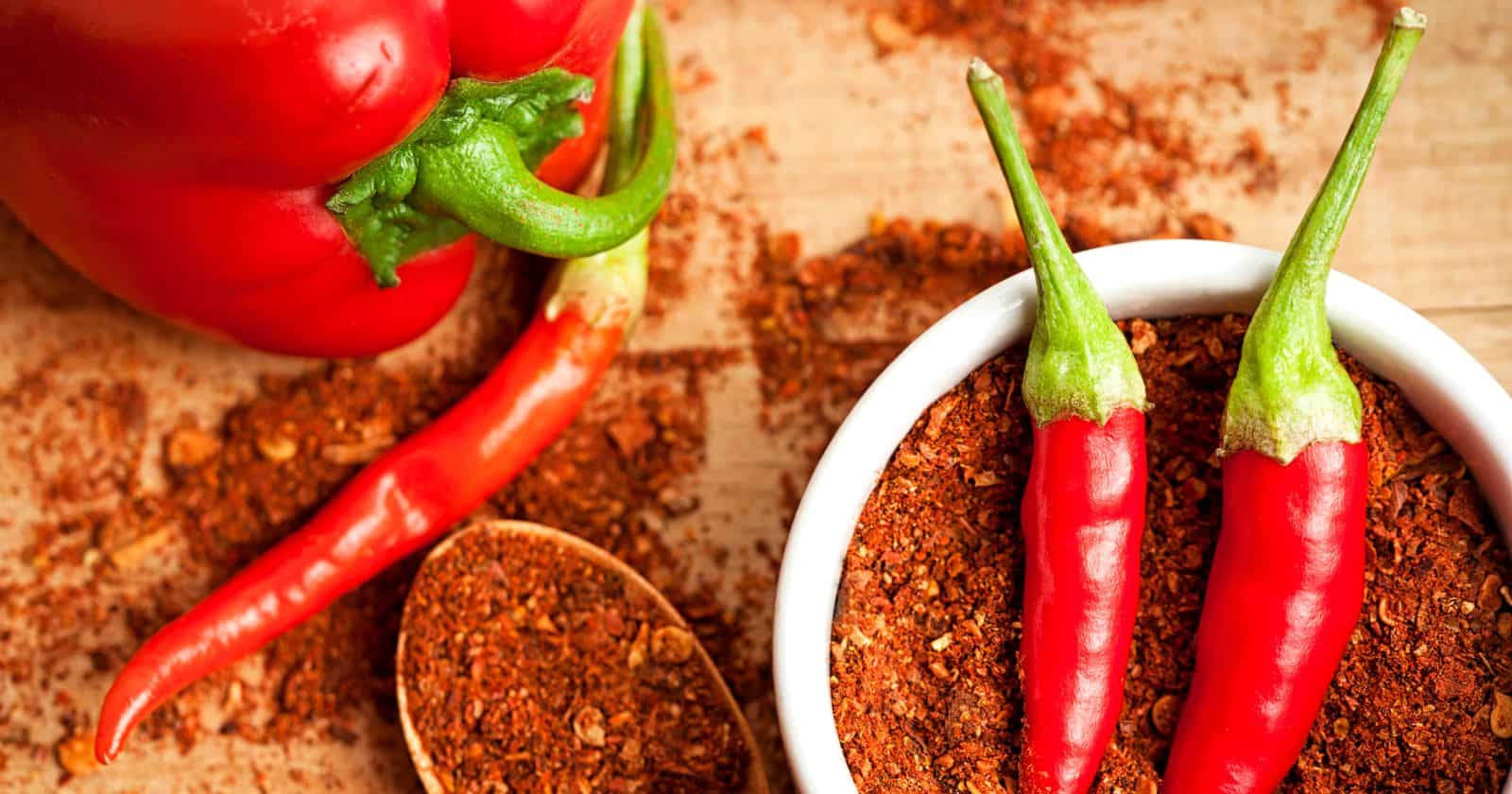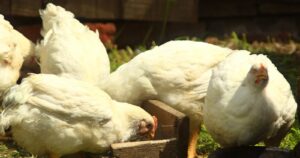Do squirrels keep stealing the birdseed from your feeders before your feathered friends can enjoy it? If you’re tired of constantly refilling feeders that get raided by greedy squirrels, using cayenne pepper is an excellent natural solution to deter those pesky thieves.
But does cayenne pepper actually work to keep squirrels away from bird feeders?
The answer is yes – strategically using cayenne pepper can effectively repel squirrels from your bird feeders without harming birds or other wildlife.
Cayenne contains an irritating compound called capsaicin that squirrels dislike but birds cannot taste. By incorporating cayenne into your birdseed mix, around feeder poles, or in strategic areas, you can trick squirrels into avoiding your feeders and seek food elsewhere.
In this article, you’ll learn:
- How much cayenne pepper to mix into birdseed
- Creative ways to apply cayenne around your yard and feeders
- The pros and potential drawbacks of using cayenne pepper
- Other natural deterrents to use alongside cayenne
With a bit of spicy strategy, you can outsmart those squirrels and finally enjoy watching the birds feast at your feeders. Let’s get started!
Why Cayenne Pepper Repels Squirrels
Cayenne pepper contains a compound called capsaicin that gives it that signature spicy kick. Squirrels have an aversion to capsaicin, finding it unpleasant and irritating. But birds lack the receptors that make mammals experience the burning sensation from hot peppers.
By sprinkling cayenne pepper into your birdseed mix or around feeders, squirrels get the message that your feeders are not an easy snack stop. The
How Much Cayenne Pepper to Use in Birdseed
To repel squirrels without causing issues for birds, mix 1-3 tablespoons of cayenne pepper per pound of birdseed. Start with 1 tablespoon first to gauge squirrel reaction.
Be sure to mix the cayenne pepper directly into the birdseed rather than sprinkling on top. This prevents concentrated piles that could blow into birds’ eyes.
Reapply more cayenne every 2-3 weeks or after heavy rain. Monitor your feeder and increase amounts if squirrels return.
Other Ways to Use Cayenne
In addition to mixing cayenne pepper directly into birdseed, you can also:
- Coat feeder poles, railings, or ledges with powder to deter climbing
- Make a diluted cayenne pepper spray to lightly mist feeders and access points
- Sprinkle granules around the base of feeder poles or hanging wires
- Use as a perimeter treatment around gardens and borders
Pros of Using Cayenne Pepper
Cayenne pepper offers these advantages to keep squirrels away:
- Natural and non-toxic: Safe for birds, pets, wildlife, and the environment
- Affordable: Cayenne pepper is cheap and widely available
- Multi-purpose: Can use on feeders, poles, wires, gardens, etc.
- Weather-resistant: Lasts through light rain (reapply after heavy rain)
- Not harmful to birds: Birds lack sensitivity to capsaicin
Potential Drawbacks to Consider
While cayenne pepper can be extremely effective, a few potential drawbacks include:
- Must be reapplied frequently
- Can blow away in very windy areas
- May stain light-colored surfaces
- Squirrels may eventually tolerate mild concentrations
- May repel beneficial wildlife like butterflies
Other Herbs & Spices That Repel Squirrels
While cayenne pepper is one of the most popular and effective options, there are other herbs and spices you can use to repel squirrels:
Peppermint Oil – Strong scent overwhelms squirrel’s sensitive noses. Use pure peppermint oil around gardens, wires, and feeders.
Garlic – Smelly bulbs and garlic powder deter squirrels. Plant garlic borders in gardens or sprinkle garlic powder around.
Black Pepper – Similar to cayenne, black pepper’s spicy heat deters squirrels. Mix with birdseed or scatter around.
Chili Oil – Made from hot peppers, chili oil can be used like cayenne spray. Mist dilute chili oil near problem areas.
Cinnamon – Has a strong scent. Sprinkle ground cinnamon or stick pieces around plants and feeders.
Cloves – Nail-like buds have a potent aroma. Use whole or ground cloves as perimeter treatments.
Turmeric – Bright yellow powder that stains and has anti-climb properties. Rub on poles, wires, and feeders.
Herbs like mint, garlic, and cinnamon have the added benefit of repelling insects too. Get creative mixing and matching to find your perfect squirrel-deterring
Physical Repellents to Keep Squirrels Away
In addition to taste repellents like cayenne pepper, there are also physical deterrents that can help restrict squirrels’ access to bird feeders.
Squirrel-proof Bird Feeders
Specialized squirrel-proof bird feeders have clever designs that prevent squirrels from reaching the seed. Some features include:
- Weight-sensitive perches that close access when squirrels land on them.
- Domes or cages that allow birds but block larger squirrels.
- Smooth, slick surfaces that squirrels cannot cling to.
- Electric shocking perches (battery-powered) triggered by squirrel weight.
Feeder Poles and Baffles
Installing feeders on long, thin poles makes it hard for squirrels to climb up. Squirrel baffles are cone-shaped barriers that block their climbing ability. You can also apply grease on poles.
Location
Placing feeders in isolated areas away from trees, fences, and wires that squirrels can jump from can restrict access. Site feeders at least 16 feet away from jumping points.
Spinning Feeders
Feeders that freely spin and move in the wind make it tough for squirrels to stabilize themselves and reach the seed.
Combining physical deterrents with taste repellents like cayenne pepper provides multiple protective layers to safely keep squirrels away from your bird buffet.
Other Natural Ways to Deter Squirrels
For best results, use cayenne pepper alongside other deterrents like:
- Squirrel-proof bird feeders
- Feeder baffles or drying grease on poles
- Moving feeders to isolated areas away from trees/wires
- Scare tape, decoys, or water sprayers
- Providing squirrel feeders away from bird feeders
With some clever use of spicy cayenne pepper and other deterrents, you can outsmart those squirrels and protect your birdseed. Let the feasting begin for your feathered friends!





